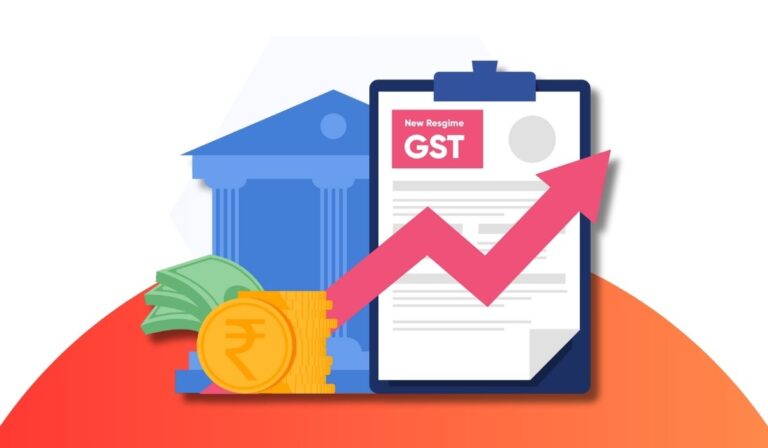In today’s digital era, online transactions have become the new normal. Interchange fees are the charges that a merchant’s bank account pays to process credit and debit card transactions. In this blog, we will delve into the world of interchange fees, discussing their implications for users and exploring the broader impact on the economy.
What are Interchange Fees?
When a customer purchases using a credit or debit card, the payment network acts as an intermediary between the merchant’s acquiring bank and the customer’s issuing bank. Interchange fees are the charges that are paid to the card-issuing bank, which cover the handling costs, fraud protection, technology infrastructure, and all the other risks involved in approving the payment.
In India, the interchange rates vary according to the category codes of merchants and range from 0.5% to 1.1%.
These charges are meticulously calibrated based on interest rates, transaction costs, and the risk associated with the transactions. Industry giants like MasterCard and Visa allocate a portion ranging from 70% to 90% of the overall fees merchants pay to financial institutions.
Why are Interchange fees necessary?
- Transaction Processing: By charging interchange fees, payment networks can sustain the infrastructure to facilitate seamless electronic payments. Interchange fees cover the costs associated with processing credit and debit card transactions.
- Risk Mitigation: Interchange fees also help mitigate the risks involved in card-based transactions. These fees contribute to funding robust security measures, advanced technologies, and monitoring systems that safeguard against unauthorized transactions, ensuring trust and reliability in the payment ecosystem.
- Rewards and Benefits: Cashback programs, loyalty points, travel rewards, and other incentives are often funded by the interchange fees paid by merchants. These rewards not only attract consumers but also promote card usage and card acceptance, stimulating economic activity and driving customer loyalty.
- Innovation and Technological Advancement: Interchange fees are vital in driving innovation within the payments industry. They enable the introduction of innovative payment solutions, improved transaction speed, enhanced security measures, and expanded acceptance networks, which benefit businesses and consumers.
Types of Interchange Fees
Interchange fees keep varying across countries, payment networks, and card issuers. Some types of interchange fees are:
- Card Type Fees: Different types of cards, such as credit cards, debit cards, prepaid cards, or commercial cards, may attract varying interchange fees. Each card type carries associated costs and risks, leading to different fee structures.
- Merchant Category Fees: Interchange fees can also vary based on the merchant’s industry or category. Industries, like airlines, hotels, or fuel stations, may have unique fee structures due to specific considerations related to their terms and operations.
- Card Brand Fees: Payment networks such as Visa, Mastercard, or American Express set their own interchange fees. They represent the base fee for utilizing their payment network and infrastructure.
- Card-Present (CP) and Card-Not-Present (CNP) Fees: Interchange fees can differ based on whether a transaction is conducted in person (CP) or remotely (CNP). CP transactions typically involve physical card swiping or dipping, while CNP transactions occur online or over the phone.
Interchange fees VS processing fees
Interchange and processing fees are integral parts of the fees associated with electronic payment transactions, although they have distinct purposes and are imposed by different entities.
Interchange Fees:
- These fees are set and charged by different Payment Networks like American Express, Mastercard, or Visa.
- These cover Network and Card Issuer Costs associated with processing transactions, risk mitigation, and supporting the card issuer’s services.
Processing fees:
- These fees are charged by the Processors who handle all the technical aspects of the transaction process.
- These cover the transaction processing services encompassing the handling cost, authorization, and data transmission.
The Impact on Users
- Card Acceptance: Interchange fees have increased the acceptance of cards by merchants. Although High interchange fees may discourage small businesses, particularly those with slim profit margins, from accepting card payments.
- Consumer Costs: Interchange fees can indirectly impact consumers as merchants typically pass on these fees to customers through higher prices. Consequently, users may experience increased prices on goods and services to compensate for the costs incurred by businesses.
The Economic Impact
- Innovation and Competition: Higher fees may create barriers to entry for emerging payment solutions and startups, limiting their ability to offer competitive alternatives to traditional payment networks.
- Economic Efficiency: Excessive fees may distort the optimal allocation of resources by encouraging payment methods that are more costly for businesses and consumers. Additionally, high interchange fees can hinder the adoption of electronic payments, resulting in a reliance on less efficient cash-based transactions.
Conclusion
Even though interchange fees have received criticism, they still serve as a critical mechanism for sustaining secure and efficient electronic payment systems, supporting risk management, fostering innovation, and enabling the provision of valuable rewards and benefits to cardholders.
PayMe is an RBI-registered Indian lending Fintech company providing quick personal loans online to individuals and small businesses at low-interest rates. PayMe aims to bridge the gap between traditional lending institutions and borrowers who may need to meet their stringent requirements. With a user-friendly platform and fast loan approval process, PayMe is committed to providing its customers with financial freedom, Quick disbursal, and flexibility. In addition, the company aims to provide fast loan approval to empower individuals and businesses to achieve their goals by providing timely access to the necessary funds. Payme’s customer-centric approach and innovative technology make it a leader in the Indian lending Fintech industry.
Read more: Hedge funds: The power of Alternate Investing




